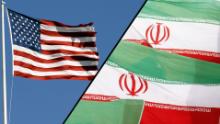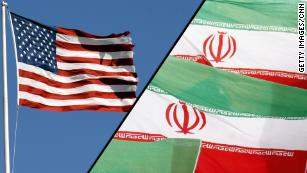
From the Website of CNN NEWS
links: https://edition.cnn.com/2019/05/15/politics/lawmakers-congress-iran/index.html
Washington (CNN)US lawmakers on both sides of the aisle called on the Trump administration to be more open about its strategy on Iran as tensions between Washington and Tehranescalated sharply.
Democratic lawmakers called on administration officials to reopen diplomatic channels with Iran, tone down their rhetoric and reconsider their strategy -- or at least explain it. Above all, they stressed that the White House cannot launch a war without consulting Congress first.
"They have no business declaring a war without the consent of Congress," House Speaker Nancy Pelosi, a California Democrat, told reporters.
Republicans and administration officials defended the recent steps, including the State Department's order for some embassy personnel in Baghdad to leave the country as prudent precautionary measures, even as skepticism about some administration claims mounts and concerns about a conflict grow.
Concerns
The administration is moving to quell lawmakers' frustration by holding a briefing on Thursday for the Senate and House leaders from both parties as well as the top Republican and Democratic members of each chamber's intelligence committee.
But Democrats are calling for a broader briefing after reports that National Security Adviser John Bolton ordered updates to a military plan to send 120,000 troops to the Middle East should Iran attack US forces or escalate its nuclear activities.
 |
Iran tensions spotlight Trump's questionable credibility |
"There's an alarming lack of clarity here," Minority Leader Chuck Schumer said on the Senate floor Wednesday. "There's a lack of strategy and there's a lack of consultation."
Schumer said he thought that acting Defense Secretary Patrick Shanahan and the Chairman of the Joint Chiefs of Staff, Joseph Dunford, might brief senators next week.
"An adventure like this, 120,000 troops or a large number of troops, should have to be approved by Congress. It should certainly be discussed with the Congress," Schumer said. "The President ought to come up with a strategy and make it clear to Congress. President Trump, what is your strategy? Where are you headed and why aren't you talking to Congress about it?"
Republican Senator Jerry Moran of Kansas, emerging from a classified briefing with the CIA director and NSA director on global threats, told CNN he thinks "there is a lot more to be known before decisions are made" about possible military responses to Iran.
Moran, a member of the Defense Appropriations subcommittee that held the briefing in the Capitol, said he hadn't reached a conclusion about the differing US and British views on the Iranian threat. "But in my view, it is worthy of further exploration," Moran said.
 |
| Iran tensions spotlight Trump's questionable credibility 02:45 |
Iran's President Hassan Rouhani, speaking at a high-level meeting that included the Supreme Leader Ayatollah Khamenei, urged the Iranian people to be steadfast amid US "psychological pressure" and called on the US to "repent" and "get back on the right track," according to the state-run Islamic Republic of Iran Broadcasting outlet.
Administration officials have said they don't want a war with Iran, but haven't ruled out the possibility and have said repeatedly in recent days that they will respond to any Iranian provocation with a swift and decisive response.
Asked on April 15 if the Trump administration was seeking a military confrontation with Iran, within the contours of the Authorization to Use Military Force legislation, Secretary of State Michael Pompeo left the door slightly ajar.
'Broad powers'
"The United States and President Trump will act lawfully. He'll act within his authorities," Pompeo said. "Article 2 gives broad powers, the AUMF gives a set of broad powers, but they are -- we understand them."
Speaking at the Capitol building Wednesday, Pelosi said that "the very idea that they would say that they would use the authorization of the use military force that is 18 years old and something by now -- whatever its age, it's not appropriate in terms of its scope, its geography, its timing for any actions they might take, wherever they may be taking them."
But Sen. John Thune of South Dakota was among Republicans who said the administration was taking careful proactive precautions. "Our war planners are doing their diligence and ensuring if need-be, we're prepared to respond to anything they do," Thune said.
Asked whether Congress should be consulted, Thune said of the administration that "sometimes they have to respond to a set of circumstances and they don't always have all the time in the world to do all the consultations, but clearly there are some issues that have arisen there that have necessitated a more proactive presence. But hopefully that's all it will be."
 |
US narrative on Iran questioned as allies call for 'restraint' |
"The intelligence that we've seen on the Senate Intelligence Committee does show a heightened threat throughout the region" from Iran and its proxy forces, Cotton told CNN's Christiane Amanpour. "The British general and I may have a different interpretation of that threat or how severe that threat is."
There are also US experts voicing concern about the quality of the recent intelligence on Iran.
Col. Cedric Leighton (Ret.), a former high ranking official at the National Security Agency as well as with Air Force intelligence, said there is no indication yet that the threats Iran poses right now "are unique and different from the basic noise that we have had in the Middle East before and that lends to a lot of doubt, not only among allies but also among the public at large."
'What makes me skeptical'
"What makes me skeptical is the fact that a lot of the intelligence that has been revealed so far seems to be very normal, it seems to be the kind of behavior that Iran has engaged in before and we haven't really reacted to that before," Leighton, a CNN military analyst, said. "I am very skeptical of the intelligence that we have right now."
Moran of Kansas, when asked if he was concerned faulty intelligence could lead the US to war, said, "We know that we need to have the most accurate Intelligence available that we can determine, that we can arrive at before we make any decisions about the use of military force."
In an apparent reference to the Iraq War, which was launched in part on the basis of flawed intelligence, Moran said that "we know that from history, we know that as a practical matter people's lives are at stake."
New Jersey Sen. Robert Menendez, the ranking Democrat on the Senate Foreign Relations committee, said the lack of information was dangerous.
"We don't need another Iraq weapons of mass destruction moment, where we are engaged in a conflict without understanding, testing the veracity of the intelligence that might lead us to a set of actions, number one," he said. "Number two, you can't make foreign policy and national security decisions in the blind and that's what we're being asked to do with the lack of information."
CNN Website
Article Links
OTHER HUMAN RIGHTS PROMOTIONS WEBSITES
------------------------------------------------------------------------------------------------
THE GLOBAL WORLD PROMOTIONS
-------------------------------------------------------------------------------------------------
-------------------------------------------------------------------------------
---------------------------------------------------




































0 comments:
Post a Comment